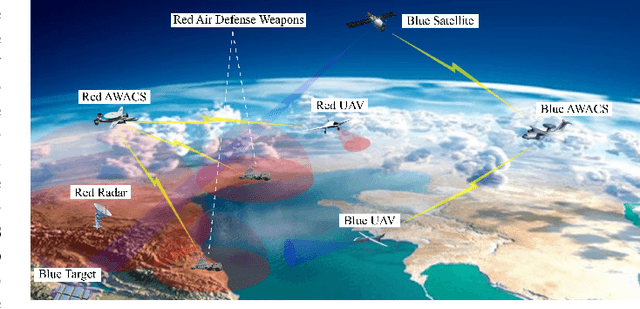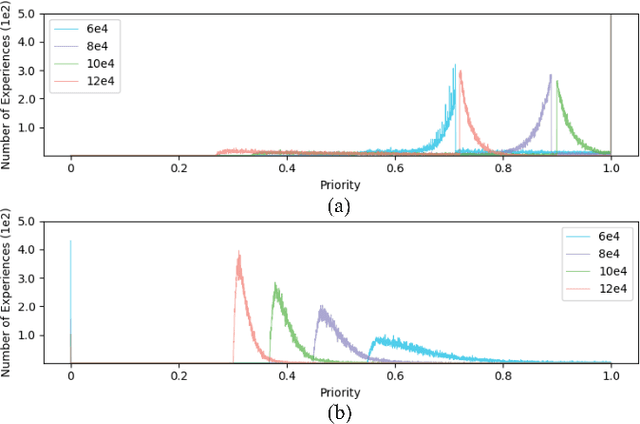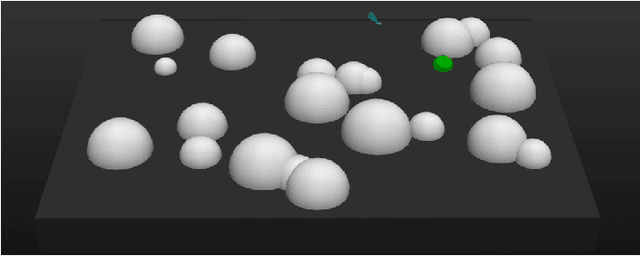Asynchronous Curriculum Experience Replay: A Deep Reinforcement Learning Approach for UAV Autonomous Motion Control in Unknown Dynamic Environments
Paper and Code
Jul 04, 2022



Unmanned aerial vehicles (UAVs) have been widely used in military warfare. In this paper, we formulate the autonomous motion control (AMC) problem as a Markov decision process (MDP) and propose an advanced deep reinforcement learning (DRL) method that allows UAVs to execute complex tasks in large-scale dynamic three-dimensional (3D) environments. To overcome the limitations of the prioritized experience replay (PER) algorithm and improve performance, the proposed asynchronous curriculum experience replay (ACER) uses multithreads to asynchronously update the priorities, assigns the true priorities and applies a temporary experience pool to make available experiences of higher quality for learning. A first-in-useless-out (FIUO) experience pool is also introduced to ensure the higher use value of the stored experiences. In addition, combined with curriculum learning (CL), a more reasonable training paradigm of sampling experiences from simple to difficult is designed for training UAVs. By training in a complex unknown environment constructed based on the parameters of a real UAV, the proposed ACER improves the convergence speed by 24.66\% and the convergence result by 5.59\% compared to the state-of-the-art twin delayed deep deterministic policy gradient (TD3) algorithm. The testing experiments carried out in environments with different complexities demonstrate the strong robustness and generalization ability of the ACER agent.
 Add to Chrome
Add to Chrome Add to Firefox
Add to Firefox Add to Edge
Add to Edge